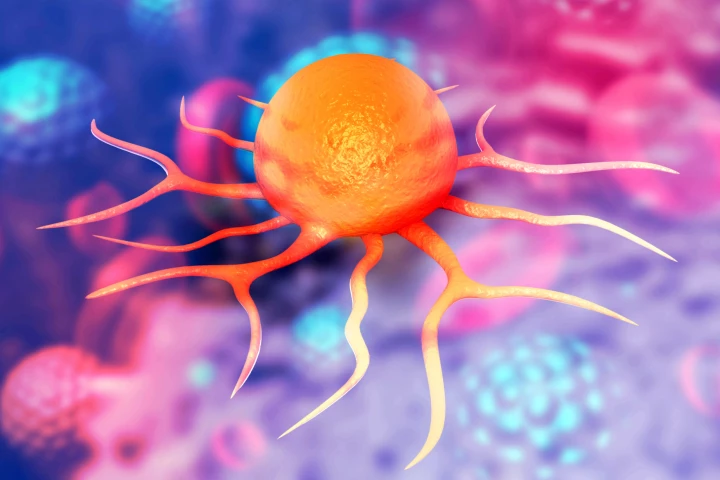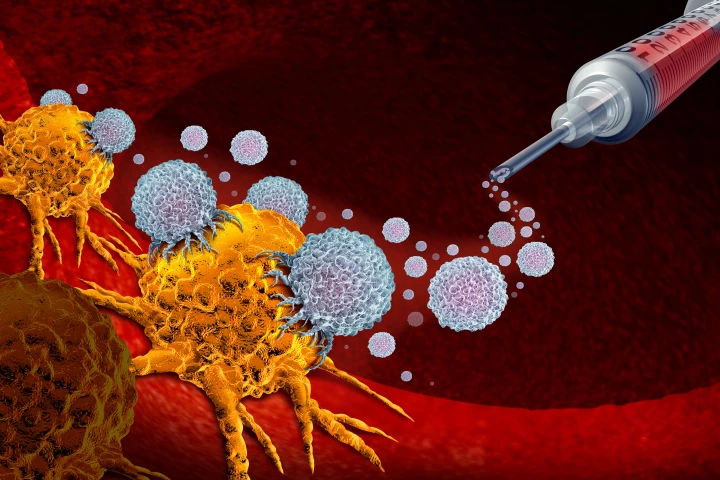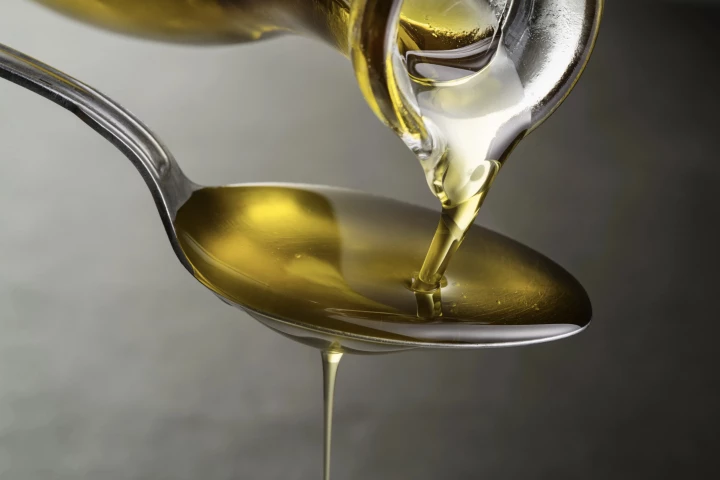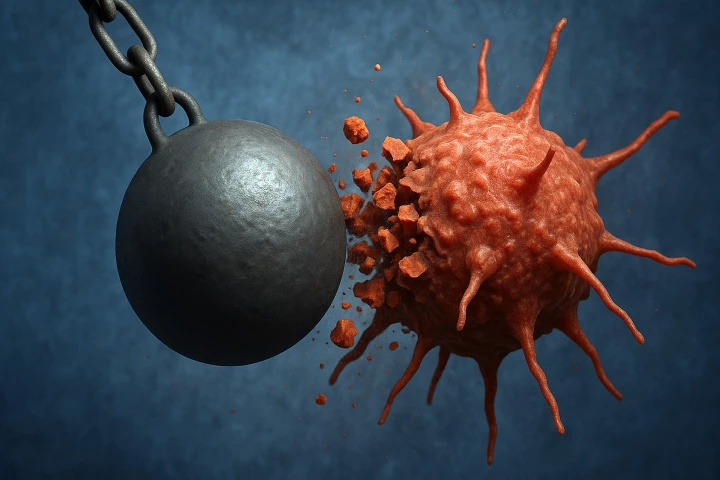Cancer
-
For some time, we've known that it's rare to see people with both cancer and Alzheimer's diseases. Now, scientists believe they may have found why, discovering a molecule in cancer cells that clears problem proteins from the brain.
-
While heartburn medication can be a lifesaver for those suffering from gastric reflux, several studies over the years have indicated that the drugs could increase stomach cancer risks more than threefold. A new meta analysis says that's likely not the case.
-
A bacterium from the gut of Japanese tree frogs has "exhibited remarkably potent" tumor-killing abilities when administered intravenously, outperforming current standard therapies and paving the way for an entirely new approach to treating cancer.
-
Researchers have demonstrated how a secret weapon made in the gut, produced by consuming pomegranate and walnuts, can rejuvenate the immune system in middle age, shielding us from cell damage, inflammation and chronic diseases including cancer.
-
A large international study of more than 23,000 patients has found that common medicines used to treat high blood pressure and cholesterol, as well as heartburn, may be impacting cancer treatment effectiveness.
-
Bitter taste receptors inside cancer cells have been found to be activated in the presence of anti-cancer drugs. Shutting these receptors down could make the cells more susceptible to drug treatment and help us fight the disease more effectively.
-
Scientists found that nearly every cancer harbors its own distinct community of microbes – tiny passengers that can influence how tumors start, spread, and respond to treatment, paving the way for a new era of precision medicine.
-
Getting a COVID shot might do more than protect against the virus – it could also help cancer patients live longer. A new study found that mRNA vaccines were linked to a doubling in three-year survival for those on immunotherapy.
-
In a world-first breakthrough, scientists have discovered how a sugary “cloak” helps bowel cancer hide from the immune system, and how stripping it away could turn the body’s anti-cancer defenses back on.
-
A new drug combination to treat advanced recurring prostate cancer has shown remarkable results in a long-term trial, lowering the risk of death after eight years by 40.3%. What's more, the drug treatments are already FDA-approved on their own.
-
In a groundbreaking study, a healthy fatty acid in olive oil has been found to "supercharge" immune cells that fight cancer. Meanwhile, another kind of natural fat undermines the health of the same cells, killing them off and triggering inflammation.
-
A next-generation cancer vaccine has shown stunning results in mice, preventing up to 88% of aggressive and difficult-to-treat cancers by harnessing dual-pathway nanoparticles that train the immune system to recognize and destroy tumor cells.
Load More











